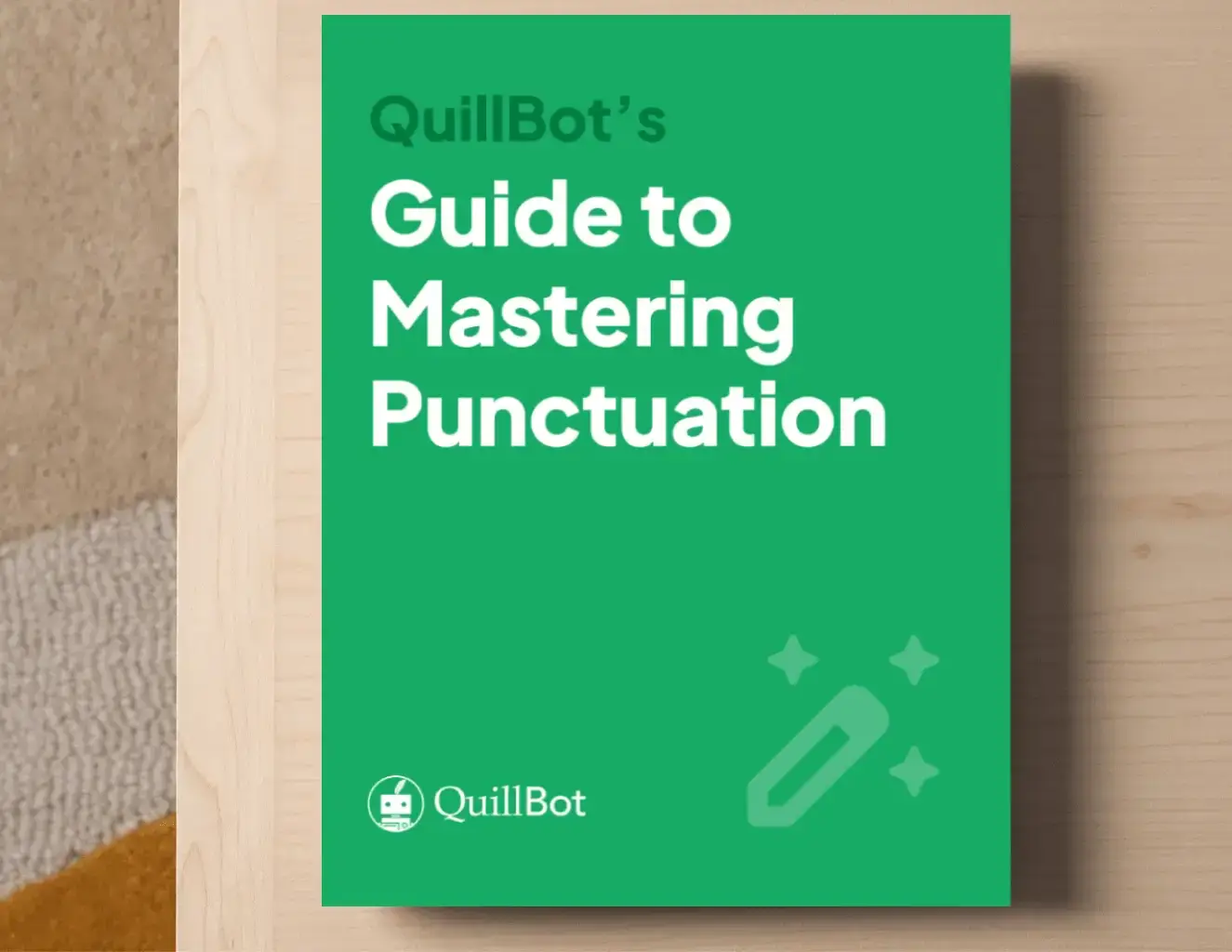The word into is not a verb; its part of speech is typically a preposition (e.g., “Pour the milk into the mixture”), but it can also function as the particle of a phrasal verb (e.g., “I’ll look into it and call you back”).
If you’re not sure if “into” is the correct preposition, why not run the sentence through QuillBot’s free Grammar Checker?
Read this FAQ: Is into a verb?
Some words with the suffix ment, which often converts a verb into a noun, include the following:
- Amusement
- Agreement
- Commitment
- Development
- Improvement
- Government
- Management
- Movement
- Nourishment
- Settlement
Spelling errors are common with words that end in suffixes because they can be rather long, but QuillBot’s free Grammar Checker instantly finds and fixes spelling errors.
Read this FAQ: What are some words with the suffix ment?
A suffix in a name is a letter or group of letters after the surname (aka last name) that provides details about someone’s familial relationship (e.g., “Jr.”) or professional qualifications (e.g., “MD”).
Some of the most common name suffixes include the following:
- Jr. (short for “junior”) is for a man who has the same first and middle name as his father (e.g., Cuba Gooding Jr.).
- III (short for “the third”) is for a man who has the same given name as his father and grandfather (e.g., Randolph Severn Parker III)
- MD is an abbreviation for “medical doctor” (e.g., Sanjay Gupta, MD)
- PhD is a suffix for someone who’s earned a doctorate of philosophy (e.g., Mayim Bialik, PhD)
When a name suffix denotes a professional qualification, there’s usually a comma between the surname and the suffix. The QuillBot Grammar Checker can help you use name suffixes correctly in your writing.
Read this FAQ: What is a suffix in a name?
Some words that end in the osis suffix include the following:
- Hypnosis
- Diagnosis
- Metamorphosis
- Symbiosis
- Halitosis
- Cirrhosis
- Fibrosis
- Osteoporosis
- Prognosis
- Neurosis
- Tuberculosis
Words that end in “-osis” are usually nouns for processes or medical conditions.
Spelling words that end in “-osis” can be tricky because they’re usually long, but the QuillBot Grammar Checker can help you get them right.
Read this FAQ: What are some words that end in the osis suffix?
A suffix with Senegal or Sudan is “-ese” (i.e., “Senegalese” and “Sudanese”), which is also a suffix with Japan and other country names (e.g., “Japanese” and “Vietnamese”).
You can add the “-ese” suffix to a country name to create a different noun for the people or language (e.g., “Whitney speaks Japanese fluently”) or an adjective that describes a noun (e.g., “Japanese architecture” and “Senegalese culture”).
QuillBot’s free Grammar Checker can help you spell words like “Senegalese” and “Sudanese” correctly in your writing.
Read this FAQ: What is a suffix with Senegal or Sudan?
A suffix with steward or host is “-ess” (i.e., “stewardess” and “hostess”). The “-ess” suffix means “female.” Other words with the “-ess” suffix include “goddess” and “princess.”
“Stewardess” and “hostess” are appropriate when you know the person is a female, but otherwise, opt for gender-neutral terms, such as “host.” (A neutral term for “stewardess” is “flight attendant.”)
The QuillBot Grammar Checker can help you with correct spelling when you’re writing with words that end in the suffix “-ess.”
Read this FAQ: What is a suffix with steward or host?
Yes, English words have Latin prefixes, such as “pre-” in “preview” and “prehistoric” and “in-” at the beginning of “inconceivable” and “inevitable.” Some of the other Latin prefixes include the following:
- Ab- (e.g., abnormal)
- De- (e.g., deactivate)
- Im- (e.g., impossible)
- Re- (e.g., regain)
QuillBot’s AI Chat can show you fascinating and detailed lists of English words with Latin prefixes.
Read this FAQ: Do English words have Latin prefixes?
Yes, English words have Greek prefixes, such as “mono-” in “monorail” and “monoculture” and “anti-” in “antibiotic” and “anticlimactic.” Some of the other Greek prefixes include:
- Auto- (e.g., automobile)
- Hyper- (e.g., hyperactive)
- Hypo- (e.g., hypothyroidism)
- Para- (e.g., paraprofessional)
- Tele- (e.g., telecommunications)
Have you tried QuillBot’s AI Chat for questions about word origins? It will instantly show you detailed and accurate responses to common grammar questions.
Read this FAQ: Do English words have Greek prefixes?
The prefix “dis-” means “stop” or “remove.” For example, when you add “dis-” to the verb “appear” to make “disappear,” it means that something stopped appearing. Other words with the prefix “dis” include “disengage,” “disassemble,” and “disobey.”
Spelling errors are common with long words that begin with “dis-,” such as “dissatisfaction” and “disassociation.” The QuillBot Grammar Checker instantly finds and fixes spelling errors.
Read this FAQ: What does the prefix dis mean?
The prefix “in-” means “not.” It gives a root word the opposite meaning. For example, “inactivity” is the opposite of “activity.” Other words with the prefix “in” include “inaccurate,” “inedible,” and “incoherent” (e.g., “The rotten vegetables were totally inedible”).
Sometimes the prefix “in-” is confused with “un-” because they mean the same thing. Luckily, QuillBot’s free Grammar Checker can prevent those errors.
Read this FAQ: What does the prefix in mean?
